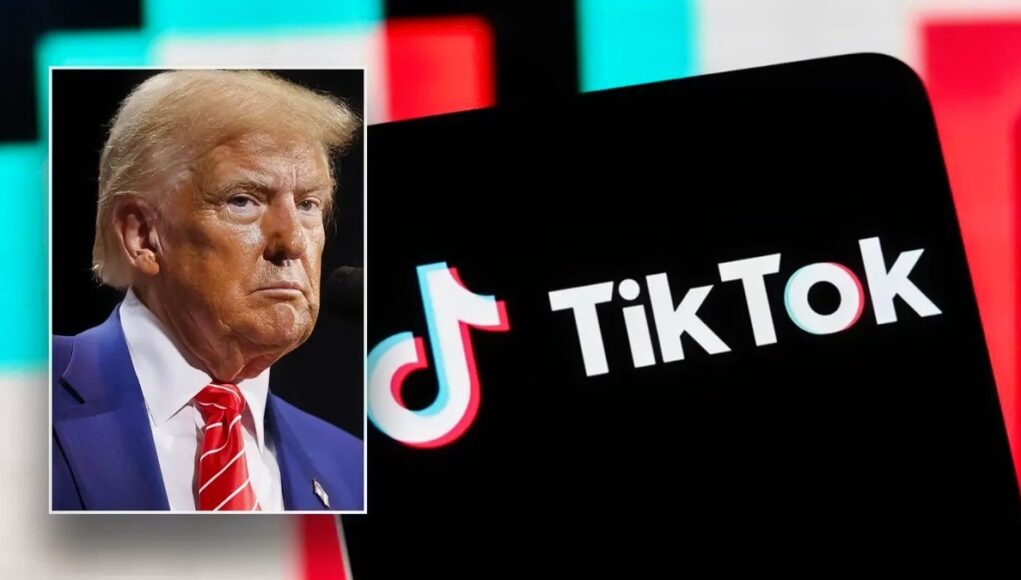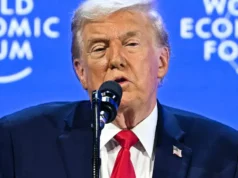TikTok resumed operations in the United States on Sunday after President-elect Donald J. Trump revealed plans to issue an executive order delaying the enforcement of a federal ban on the social media platform.
This sudden reversal came shortly after major app stores had removed TikTok, effectively restricting access for U.S. users.
In a post on X, TikTok announced, “In agreement with our service providers, TikTok is in the process of restoring service.”
READ ALSO: US Supreme Court Upholds Law On TikTok Ban
Earlier that morning, Trump stated on Truth Social that he would issue an executive order on Monday to delay the law’s prohibitions, citing the need to negotiate a deal to safeguard national security.
The ban stems from a 2024 law requiring app stores and cloud providers to cease distributing or hosting TikTok unless its Chinese parent company, ByteDance, sells the platform. U.S. lawmakers have expressed concerns that the Chinese government could exploit TikTok’s vast user base—estimated at 170 million Americans—for intelligence gathering or propaganda.
Under the law, non-compliance could lead to hefty financial penalties for tech companies. Addressing this, Trump reassured that his order would “ensure there is no liability for companies that helped prevent TikTok from going offline before my order.”
However, Trump’s planned executive action introduces new legal and political complexities. His move temporarily overrides a bipartisan law upheld by the Supreme Court last week, raising questions about presidential authority and the rule of law in the U.S.
TikTok expressed gratitude for Trump’s intervention, stating, “We thank President Trump for providing clarity and assurance to our service providers, enabling TikTok to continue serving over 170 million Americans and supporting over 7 million small businesses.”
Despite this, legal experts warn Trump’s order could face challenges. The law permits a 90-day extension if a buyer is identified and significant progress is made toward transferring TikTok’s ownership to a non-Chinese entity. With the law already in effect, it remains uncertain whether this provision can still be invoked.
In his Truth Social post, Trump suggested the U.S. could take a 50% ownership stake in a joint venture, though he provided no further details.
TikTok maintains that a sale is impractical due to its global operational structure, while China has signaled it would block any sale involving the platform’s proprietary video-recommendation algorithm.
Meanwhile, opponents of TikTok’s continued operation are ramping up efforts to enforce the ban. Senator Tom Cotton (R-Ark.), chair of the Senate Intelligence Committee, reportedly contacted major tech firms to ensure compliance.
On Sunday, Cotton and Senator Pete Ricketts (R-Neb.) praised companies like Amazon, Apple, Google, and Microsoft for adhering to the law. They warned that violations “could result in bankruptcy,” emphasizing, “There is no legal basis for extending the law’s effective date. Only a sale will allow TikTok to operate legally.”
While some Republican lawmakers push for enforcement, Democratic leaders have sought to prevent TikTok’s shutdown. Senate Majority Leader Chuck Schumer (D-N.Y.) reportedly urged President Joe Biden to intervene, cautioning that a shutdown could tarnish his legacy.
Late Saturday, TikTok acknowledged the severity of the situation in a message to users. While the platform was temporarily unavailable, the company expressed optimism about Trump’s promised intervention. “We are fortunate that President Trump has indicated he will work with us on a solution,” TikTok stated.










